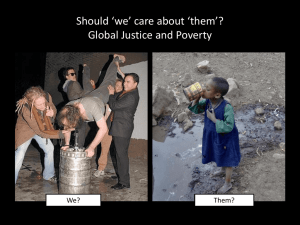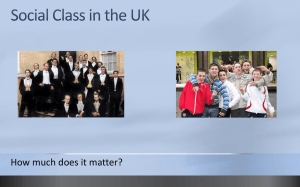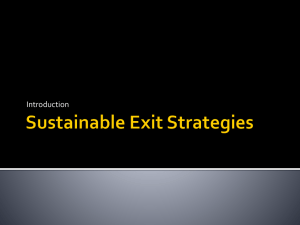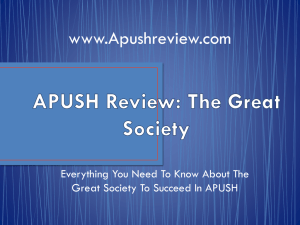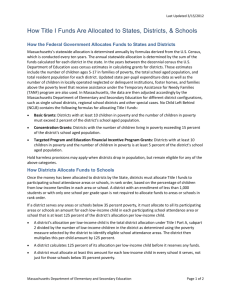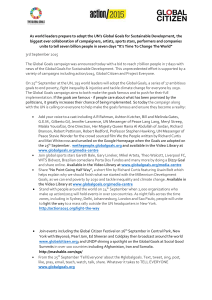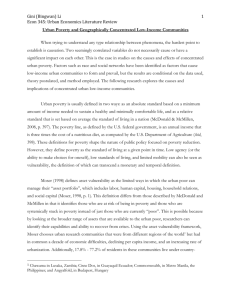Annual Meetings 2013 Opening Press Conference
advertisement
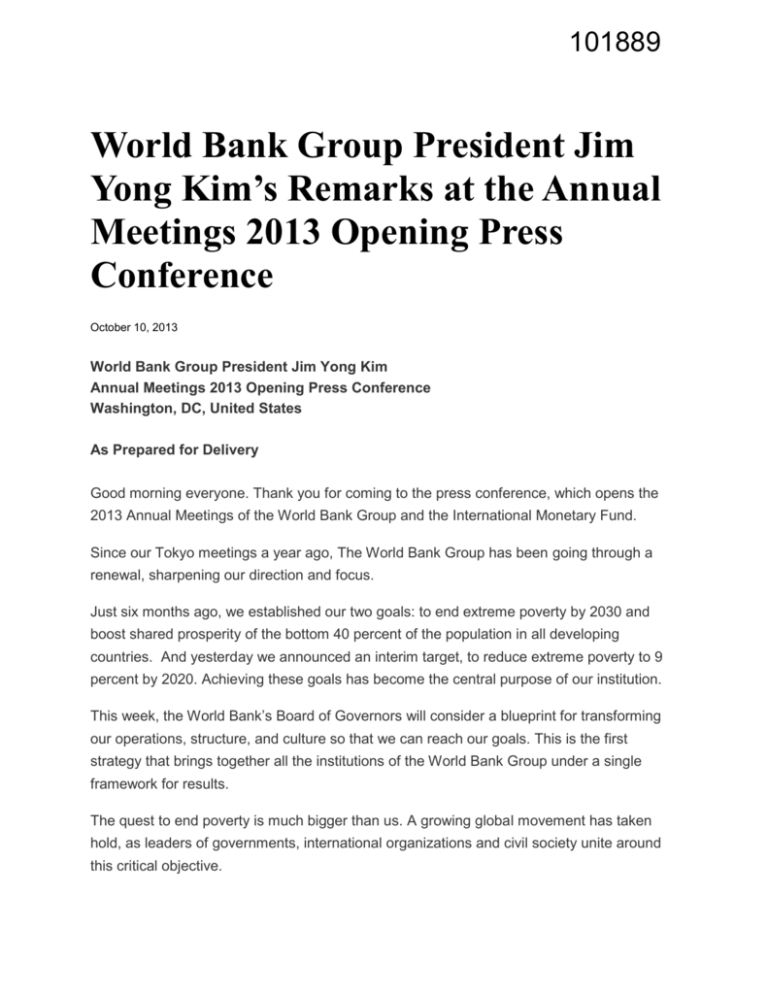
101889 World Bank Group President Jim Yong Kim’s Remarks at the Annual Meetings 2013 Opening Press Conference October 10, 2013 World Bank Group President Jim Yong Kim Annual Meetings 2013 Opening Press Conference Washington, DC, United States As Prepared for Delivery Good morning everyone. Thank you for coming to the press conference, which opens the 2013 Annual Meetings of the World Bank Group and the International Monetary Fund. Since our Tokyo meetings a year ago, The World Bank Group has been going through a renewal, sharpening our direction and focus. Just six months ago, we established our two goals: to end extreme poverty by 2030 and boost shared prosperity of the bottom 40 percent of the population in all developing countries. And yesterday we announced an interim target, to reduce extreme poverty to 9 percent by 2020. Achieving these goals has become the central purpose of our institution. This week, the World Bank’s Board of Governors will consider a blueprint for transforming our operations, structure, and culture so that we can reach our goals. This is the first strategy that brings together all the institutions of the World Bank Group under a single framework for results. The quest to end poverty is much bigger than us. A growing global movement has taken hold, as leaders of governments, international organizations and civil society unite around this critical objective. Our strategy is bold, because the challenge is immense: Over 1 billion people live in extreme poverty, earning a dollar-twenty-five or less per day. We must act with urgency and purpose. In our State of the Poor Report released today, we found that 400 million of the world’s extreme poor are children. In low-income countries, one half of the poor are children. How can we in good conscience not do all we can to lift these children and their families out of extreme poverty? They can’t wait for progress to emerge slowly. They need our help today. As we look back over the past 30 years, we see tremendous progress in the reduction of poverty. According to the report, 700 million fewer people live in extreme poverty, even as the world’s population grew by 2.5 billion. In places like India and China, hundreds of millions rose out of extreme poverty during this period. Yet, in 35 low-income countries, 100 million more poor people live in extreme poverty than three decades ago. Just a quarter have access to clean water, a fifth to sanitation. In these countries, today’s extreme poor remain as far from a $1.25 a day as those who lived in the same condition 30 years ago. And to escape poverty, these mostly rural poor will have to increase their incomes much faster than the rest of the developing world. Our strategy will help our client countries solve their biggest problems: creating jobs; fighting climate change, which hurts so many of the world’s poor; and confronting the issues of fragility and conflict. A strong replenishment for IDA, our fund for the poorest, will be critical if we are to meet our bold ambitions. With a strong replenishment, we plan to increase our IDA funding for fragile and conflict-affected countries by 50 percent over the next three years. Our program for this year’s Annual Meetings showcases the Bank Group’s focused engagement across a range important development challenges, such as climate change, financial access, energy, the role of the private sector, and gender. In particular, I’m thrilled that tomorrow we will host a special event with Malala Yousafzai, the courageous young woman who has inspired the world with her fearless advocacy for greater tolerance and education for girls across the globe. For the 400 million children still living in extreme poverty -- including far too many girls and boys who are not in school -- Malala is a powerful symbol of hope. She would not be denied. These children also should not be denied a good education and greater opportunity in life. Her example shows what their lives can become if we, as a global community, support the rights of all children and all people to lead lives filled with hope and dignity. I’d be very happy to take your questions.





